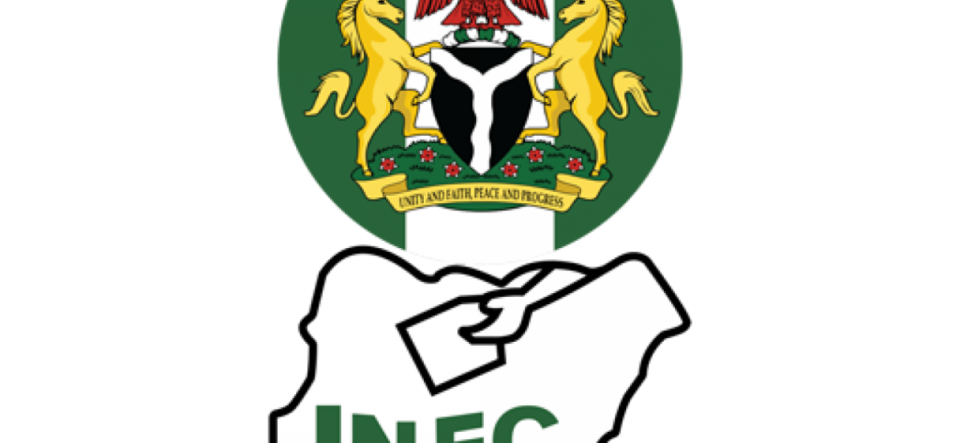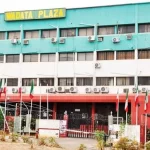…Commission’s duties already under EFCC, ICPC schedule – EFCC boss, Bawa
…Why INEC cannot prosecute electoral offender
…Reps propose 20 years jail term for offenders
By Ezeocha Nzeh
The Economic and Financial Crimes Commission (EFCC) on Tuesday, challenged the House of Representatives, the Independent National Electoral Commission (INEC), as well as the Inter Party Advisory Council (IPAC) position on the proposed National Electoral Offences Commission bill
The EFCC rejection of the bill came as the House of Representatives has proposed a 15 to 20-years jail term or a fine of N40 million for those involved in ballot box snatching, vote buying, destruction of electoral materials and other electoral offences.
While the House of Representatives, the Independent National Electoral Commission (INEC), the Inter Party Advisory Council (IPAC) and Foreign Commonwealth Development Office declared their support for the establishment of the body, the anti-graft agency rejected the proposal in its entirety, arguing that the duties of the proposed commissions will clash with its roles, as well as that of the Independent Corrupt Practices and other related offences Commission (ICPC).
In his opposition to the establishment of the commission at the public hearing organised by the House of Representatives Committee on Electoral Matters, Chairman of the EFCC, Mr. Abdulrasheed Bawa said the offences outlined in the bill fall within the purview of the Police, ministry of justice, EFCC, ICPC and the Electoral Act, 2022 hence there was no need to set up a new body.
Bawa, who was represented at the public hearing by Assistant Commandant at the Commission, Deborah Ademu-Eteh, argued that
a holistic review of the contents of the proposed bill shows that the offences contained therein in Part IV (Sections 13-32) largely constitute offences that have already been criminalised by extant laws such as the Electoral Act, 2022 (See Sections 114-129), The Penal and Criminal Codes, the Independent Corrupt Practices and other related offences Act, 2000; The Economic and Financial Crimes (Establishment)Act, 2004.
“It can be stated that the offences listed here are offences that the Nigerian Police, the Federal Ministry of Justice, the Economic and Financial Crimes (EFCC), the Independent Corrupt Practices and other related offences Commission (ICPC) and even the Independent National Electoral Commission (in Section 145 of the Electoral Act, 2022) are empowered under our extant laws to investigate and prosecute.
“There is, therefore, no need for creating an agency solely for the purpose of investigating and prosecuting electoral offences most especially when our electoral process is seasonal in nature being that elections are held once in four years in the Country,”the EFCC boss argued.
Meanwhile, Chairman of INEC, Prof. Mahmood Yakubu, made a passionate call for the establishment of the commission, which he noted would drastically reduce the rate of election malpractices among political parties, their candidates and supporters
.
He said: “This is the closest the nation has come to the passage of the long overdue National Electoral Offences Commission Bill into law. I hope in the next few months, the National Assembly will pass the Bill so that it will not suffer the fate of previous efforts which were inchoate at the end of the lifespan of the Assembly.”
He noted that the Bill for an Act to establish the National Electoral Offences Commission is a critical legislation, adding that it has been part of all national conversations on constitutional and electoral reforms for the last 13 years.
According the Mahmood, “The Justice Mohammed Uwais Committee on electoral reforms recommended it in 2009, echoed by the Sheikh Ahmed Lemu Committee following the post-election violence of 2011 and, most recently, by the Senator Ken Nnamani Committee on Constitutional and Electoral Reform in 2017″. Similar recommendations are contained in reports of police investigations, INEC administrative enquiries, court judgments, reports by the National Human Rights Commission as well as several accredited election observers.”
The INEC chairman further disclosed that the reform of the nation’s electoral process cannot be complete without effective sanctions on violators of the laws.
He said: “At present, INEC is saddled with the responsibility of prosecuting electoral offenders under the Electoral Act. This has been very challenging for the Commission. For instance, since the 2015 General Election, 125 cases of electoral offences were filed in various Courts out of which 60 convictions have been secured so far, including the most recent one in Akwa Ibom State
“The Commission would like to see more successful prosecution of offenders, not just ballot box snatchers, falsifiers of election results and vote buyers at polling units but most importantly, their sponsors. We look forward to the day when highly placed sponsors of thuggery, including high-profile figures that seek to benefit from these violations, are arrested and prosecuted. We believe the work of the proposed Commission will help in this regard.
“INEC is basically an electoral commission with extensive responsibilities which include the registration and regulation of political parties, the monitoring of party and campaign finance, their primaries, congresses, meetings and conventions; nationwide Continuous Voter registration (CVR) and the maintenance of the national register of voters; creation of polling units; delimitation of electoral constituencies; voter education and publicity; management of electoral logistics; recruitment, training and deployment of election duty officials
“For those who argue that the solution does not lie in expanding the federal bureaucracy by creating a new Commission, we believe that the National Electoral Offences Commission should be seen as an exception. While there are other security agencies that deal with economic and financial crimes, I am yet to hear anyone who, in good conscience, thinks that it is unnecessary to have established the anti-corruption agencies
“We have studied the 46 Clauses of the Bill under consideration and made 16 comments. I would like to touch on two Clauses and make a general observation while submitting our detailed comments to the Committee. First is Clause 33 (1) of the Bill which confers jurisdiction on Federal, State and FCT High Courts to try offenders under the Bill. However, these Courts are already over-burdened. It is proposed that Electoral Offences Tribunal be established with exclusive jurisdiction to try electoral offenders,” Professor Mahmood stated
PDP crisis: Tinubu intensifies lobbying, meets Wike, Ortom, Makinde in London
AS the crisis rocking the opposition Peoples Democra5tic Party (PDP) festers, Presidential candidate of the All Progressives Congress (APC), Asiwaju Bola Tinubu, has intensified his efforts to be the beneficiary of the lingering crisis as he met with Governor Nyesom Wike of Rivers state and his group in London on Tuesday.
It was gathered that Tinubu met with Governor Wike alongside Governor Samuel Ortom of Benue state and Governor Seyi Makinde of Oyo State. The governors on the platform of the People’s Democratic Party, PDP, it was learnt, left Nigeria to meet with Tinubu on Monday night.
Governors Ortom and Makinde who have been close allies of Wike and have joined forces with the Rivers State Governor in the PDP crisis as they have also met with the party’s reconciliation team last week in Portharcourt before the London meeting with Tinubu.Although details of the meeting were yet to be ascertained, it may not be unconnected with potential alliance of Wike to cede support for Tinubu in the 2023 presidential election.
Wike has been widely speculated to leave the PDP, following his fallout with Abubakar Atiku, who defeated him to clinch the PDP ticket in May.
“Yes, we left Nigeria to meet with Tinubu on Monday. We initially thought it would hold in France because that was where Tinubu went the last time he left the country. We however got signal close to our time of departure that we should proceed somewhere else.
“Governors Ortom and Makinde who have been supporters of Wike from the beginning were also on the trip,” a source told Western Post.



